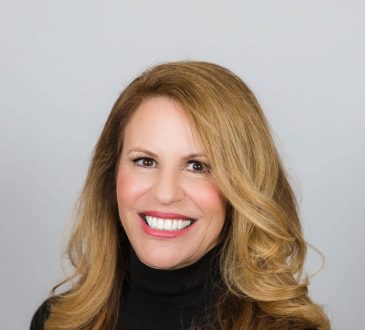The Courage Imperative: Leading Through Uncertainty and Change

“Courage doesn’t always roar. Sometimes courage is the quiet voice at the end of the day saying ‘I will try again tomorrow’.” — Mary Anne Radmacher
We live in times of great turmoil and volatility. The coronavirus tested not just leaders of governments but also business leaders. Those who were courageous to take action came out stronger than ever, while some didn’t. Now, we have the threat of wars that affect the smooth functioning of businesses. We are also experiencing times of unprecedented technological innovation. Generative AI’s impact is felt in virtually every aspect of our lives. Leaders who dare to embrace the change, mind the dangers, and make the most of it are bound to be successful.
Courage is of different types — physical, moral, emotional, spiritual, social, and intellectual.
In a business leadership context, let’s look at the social and intellectual courage to take calculated risks, make tough decisions, and embrace uncertainty and change.
Two Outstanding Examples of Courage
- Howard Schultz and the Starbucks Turnaround
“Don’t embrace the status quo. Find new ways to see. Never expect a silver bullet. Get your hands dirty.” — Howard Schultz
Schultz built Starbucks into a successful company and left his post as the CEO in 2000. The company ran into trouble during the recession of the early 2000s with strategic mistakes, prompting his return as the CEO in 2008. In an interview documented in the Harvard Business Review article, “We had to Own the Mistakes,” Schultz talks about the low point when he came back:“There was unbelievable pressure from multiple constituents. I’ve saved every analyst’s report and major story, and what was said about us and about me. My favorite was ‘Never give an 800-pound gorilla caffeine.’ There was a death march of comments like ‘Starbucks’s days are numbered,’ ‘It’s no longer relevant,’ ‘McDonald’s will definitely kill Starbucks,’ and ‘How could the board bring back Schultz, who is responsible for all this?'”
Schultz had to make several courageous decisions to turn around the company.
First, he admitted to his mistakes. He acknowledged that growth over profits was the reason for much of the trouble. Starbucks’ success couldn’t be sustained when all the focus was on how big the company could grow and not on providing the unique experience customers had grown to expect.
Then, he made several unpopular and tough decisions. He closed 600 underperforming stores, laid off thousands of workers, and focused on quality. All Starbucks stores had three-and-a-half-hour shutdowns to retain their baristas in making quality coffee, which prompted shareholders to call Schultz and ask if he was out of his mind.
By making courageous decisions, Schultz brought Starbucks profitability.
In 2024, Starbucks is again in trouble with disastrous quarterly results and stock market performance. In a LinkedIn post, Schultz, now the Chairman Emeritus, advocates several actions requiring the current management to act with courage, including senior leaders spending more time with those in the stores.
- Indra Nooyi’s Courageous Transformation of PepsiCo
“The challenge of a leader is looking around the corner… and making the change before it’s too late to make the change.” — Indra NooyiIndra Nooyi started her career in India working for Johnson & Johnson after getting an MBA from the Indian Institute of Management, Calcutta. In the US, she added a master’s degree from Yale School of Management. After several increasingly more challenging leadership positions at Boston Consulting Group, Motorola, and Asea Brown Boveri, Indra joined PepsiCo in 1994.
Right after joining PepsiCo, Indra Nooyi started influencing strategic decisions, including the move to become a health-conscious company. In 1998, she was instrumental in acquiring Tropicana, and a little later, she led the $13.8 billion acquisition of Quaker Oats Co. Under her leadership, PepsiCo started spending more on healthy foods.
The article “How Indra Nooyi Changed the Face of PepsiCo,” describes her bold action in a company whose focus has been to push sugary drinks:
“One of Nooyi’s most controversial initiatives has been to redirect Pepsi’s considerable corporate spend away from junk foods and into healthier alternatives. To this end she reclassified Pepsi’s wide-ranging products into three categories, designed to give customers more information about the foods they consume: ‘fun for you’ (such as potato chips and regular soda), ‘better for you’ (diet or low-fat versions of snacks and fizzy drinks), and ‘good for you’ (for example, the recently acquired Quaker Oats oatmeal).”
In the 2015 Harvard Business Review Spotlight Interview, answering the question, “What’s your proudest accomplishment since becoming CEO?” Indra says, “I had a choice. I could have gone pedal to the metal, stripped out costs, delivered strong profit for a few years, and then said adios. But that wouldn’t have yielded long-term success. So I articulated a strategy to the board focusing on the portfolio we needed to build, the muscles we needed to strengthen, the capabilities to develop. The board said, ‘We know there will be hiccups along the way, but you have our support, so go make it happen.’ We started to implement that strategy, and we’ve delivered great shareholder value while strengthening the company for the long term.”
Indra Nooyi will go down in leadership annals as a courageous transformational leader.
Developing Courage—Some Strategies
The profiles of Howard Schultz and Indira Nooyi tell us how courageous business leaders succeed when facing business crises.
How would you behave when faced with challenging situations? Here are some strategies that can prepare you.
- Self-Awareness
Knowing your values, strengths, and weaknesses can help you identify areas for development of courage.Example: Public speaking is an important skill you must master as a leader. When evaluating your strengths and weaknesses, you may identify this as a weakness as you fear speaking in public. You are not alone. Public speaking is the most common social fear, and 75% of adults have this fear.
- Vulnerability
Being vulnerable helps you acknowledge that you fear some things, and it is the first step in developing courage.Example: Continuing on the communication skill, a decision to engage with an organization such as Toastmasters to help overcome the fear of public speaking is sharing your fear, seeking help, and being vulnerable.
- Risk-taking
The courage to take risks comes from taking small chances and developing a tolerance for taking risks. When Nooyi pursued her strategy, she wouldn’t have known if it would pay off, but she knew it was the right thing to do, and she orchestrated the efforts to create a win.Example: Practicing public speaking in a Toastmasters club is a risk-taking activity that puts you on the path to speaking in public.
- Welcoming feedback
Courageous leaders invite their teams to give them feedback to fine-tune their actions. They are not afraid of criticism. They are aware of the blind spots invisible to them and understand the role feedback plays in uncovering them.Example: In a Toastmasters club, evaluation of speeches is an activity that provides feedback on the speeches you deliver by an evaluator. All club members are encouraged to provide additional feedback to improve the speech.
- Lifelong Learning
Courageous leaders know that to succeed in a world where the only constant is change, they must be resilient, learn from failures, and be lifelong learners. They develop an open mindset, invite new ideas, and keep evolving.Example: Becoming better at communication doesn’t stop with speaking within a Toastmasters club. You gradually expand your audience, participate in speech competitions, hone your skills over time, and build up your courage to talk to a large audience.
Making Tough Choices in a Dynamic World
Outstanding leaders don’t hesitate when faced with challenging business situations. They reach for their social and intellectual courage and execute flawlessly for a great outcome. You can do it too. Use the power of self-awareness, vulnerability, risk-taking, stakeholder feedback, and lifelong learning to improve your courage muscles continually.
Written by Shantha Mohan, Ph.D.
Have you read?
Uncertain Waters: Navigating the Evolving Landscape of Private Equity with Associate Priscilla Liu.
Driving Transformational Change: Strategies for Success.
A Leader Forged Through Service: Robert T. Hastings on Leadership, Strategic Communications and Shaping Perceptions.
Can Multitasking Facilitate Creativity?
Dynamic Music Industry Exec Brandon Silverstein Wins Billboard Power Players Award.
Bring the best of the CEOWORLD magazine's global journalism to audiences in the United States and around the world. - Add CEOWORLD magazine to your Google News feed.
Follow CEOWORLD magazine headlines on: Google News, LinkedIn, Twitter, and Facebook.
Copyright 2025 The CEOWORLD magazine. All rights reserved. This material (and any extract from it) must not be copied, redistributed or placed on any website, without CEOWORLD magazine' prior written consent. For media queries, please contact: info@ceoworld.biz








